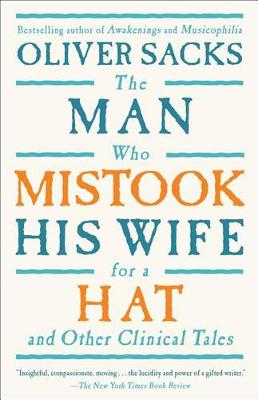Reviewed by celinenyx on
I found these anecdotes highly intriguing. Though psychology and neurology have done much to describe what the brain does and how it does it, there is still so much we do not understand, and Sacks' cases show what can go wrong. Sometimes the stories are tragic, as one might expect with severe brain damage, but many of them show strength in adversary, perseverance, and a reverence and appreciation for human life, however lived. For me Sacks' musings on what it means to live a different existence - for example, a life without an idea of one's past - were especially interesting, though others might prefer to skip these sections as they can be quite dense.
My only gripe with this book is that I felt the cases could have been rewritten more to fit the book format. Sometimes passages are repeated unnecessarily, and the jumps from one case to another can be quite stilted and abrupt. On the whole, I think The Man Who Mistook holds up well, even though science has advanced quite substantially since it was written, because of Sacks' scientific enthusiasm and sincere compassion with his subjects.
Reading updates
- Started reading
- 29 December, 2016: Finished reading
- 29 December, 2016: Reviewed
